Affiliate links on Android Authority may earn us a commission. Learn more.
Apple iPad (2020) review: Peerless performance outweighs dated design
Published onNovember 19, 2021
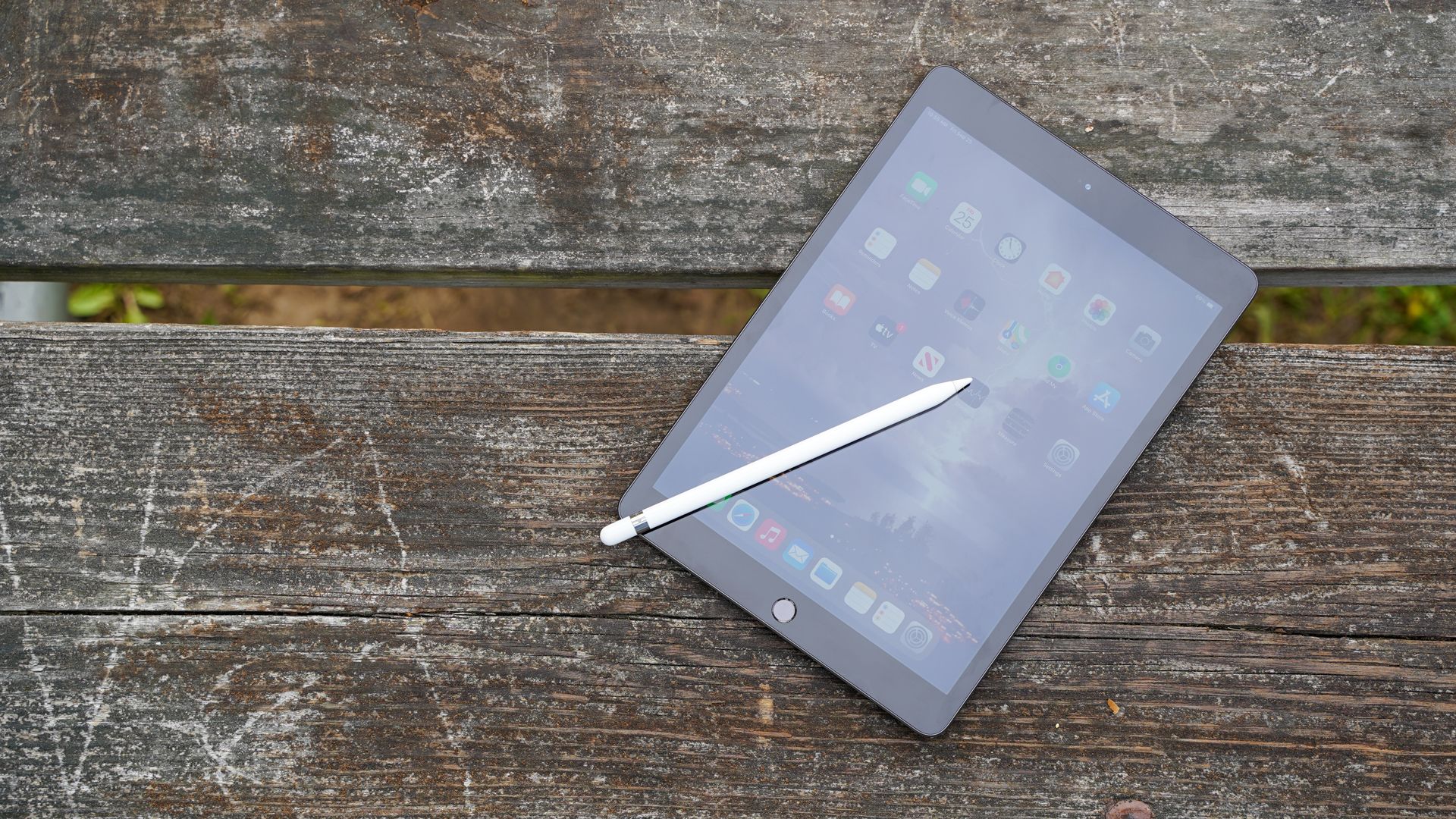
The Apple iPad is now in its eighth generation and is in some respects starting to show its age. While the 2020 model is the most capable entry-level iPad yet, it perhaps carries over too many design elements and features from past generations. This leads us to wonder which iPad is the best iPad and is it worth sticking with a warmed-over retread.
Find out if the latest low-cost iPad is the one for you in the Android Authority Apple iPad (2020) review.
Update June 2021: Refreshed some aspects of the text and added references to newer software, iPads, and competing tablets.
Apple iPad (2020) review: Design and display
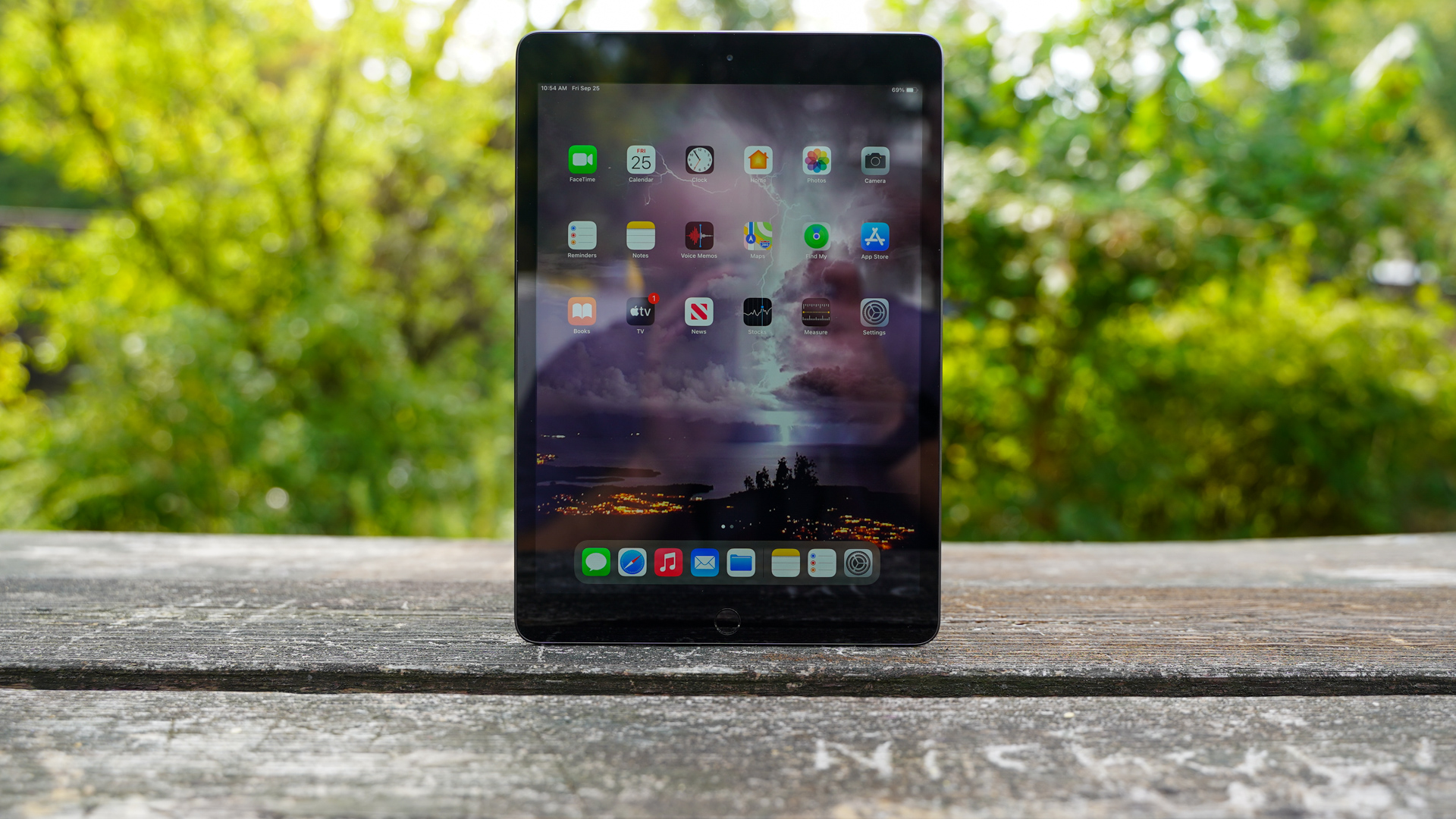
- 250.6 x 174.1 x 7.5mm
- 490g (Wi-Fi), 495g (LTE)
- 10.2-inch TFT LCD
- 2,160 x 1,620, 500nits
Apple loves to recycle its own designs. We’ve seen it for years across Apple product lines, including the MacBook, iPhone, and iPad. The Apple iPad (2020) recycles just about everything from the seventh generation model, except for some internal components.
It’s a well-built, sturdy slate made from an aluminum chassis and glass front. The metal edges are rounded along the sides and an appealing chamfer is angled to meet the display glass. The rear panel is perfectly flat with naught but a reflective Apple logo and pinhole camera interrupting the metal finish.
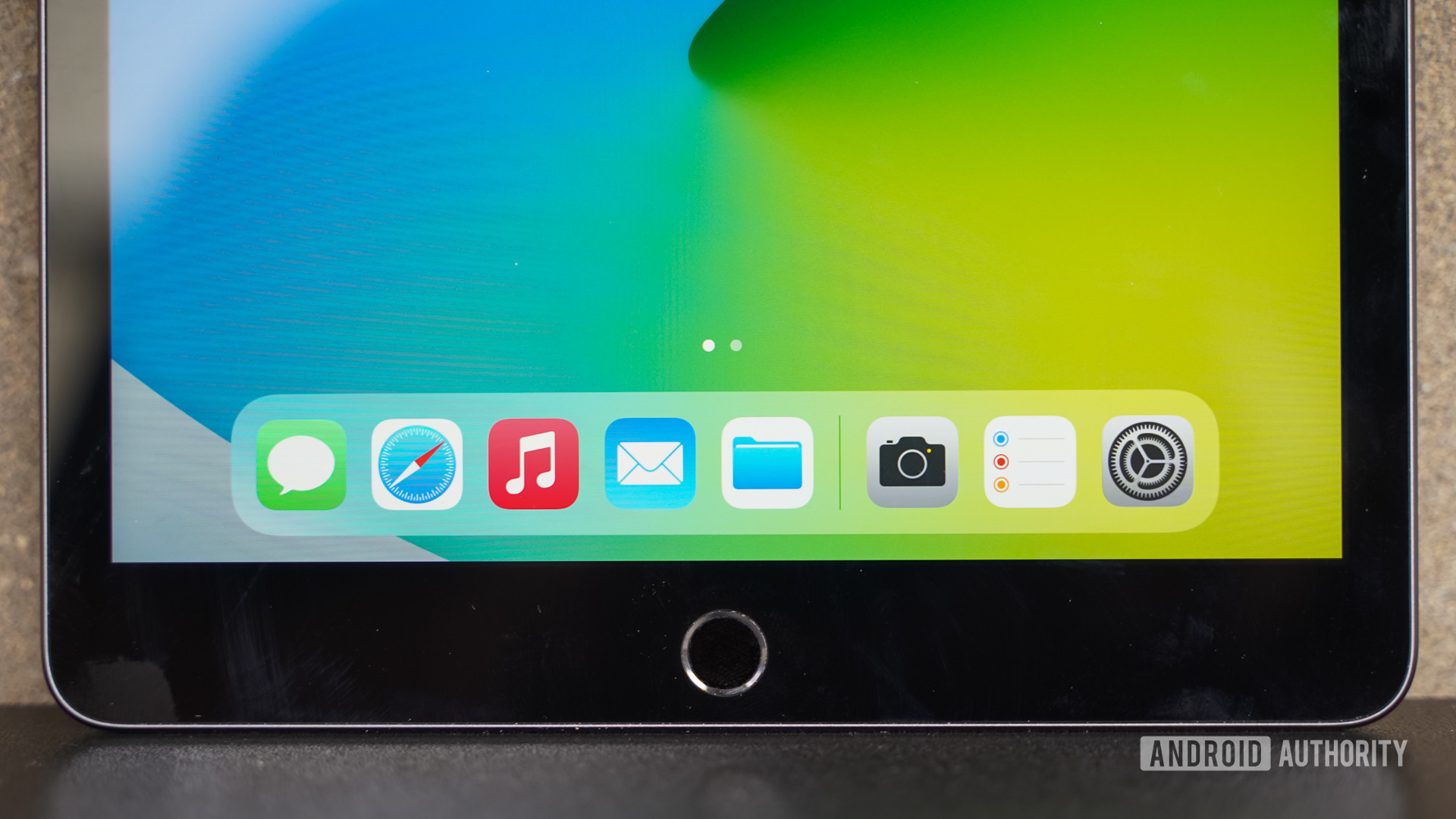
Apple did a fine job with the controls. A traditional Touch ID button adorns the chin of the iPad and it works flawlessly for securing and unlocking the tablet with a fingerprint. The pair of volume buttons on the upper right edge has an excellent profile and even better action. The same goes for the power button on the top edge. As a bonus, you’ll find a headphone jack on the top, which almost offsets the Lightning port on the bottom. Almost.
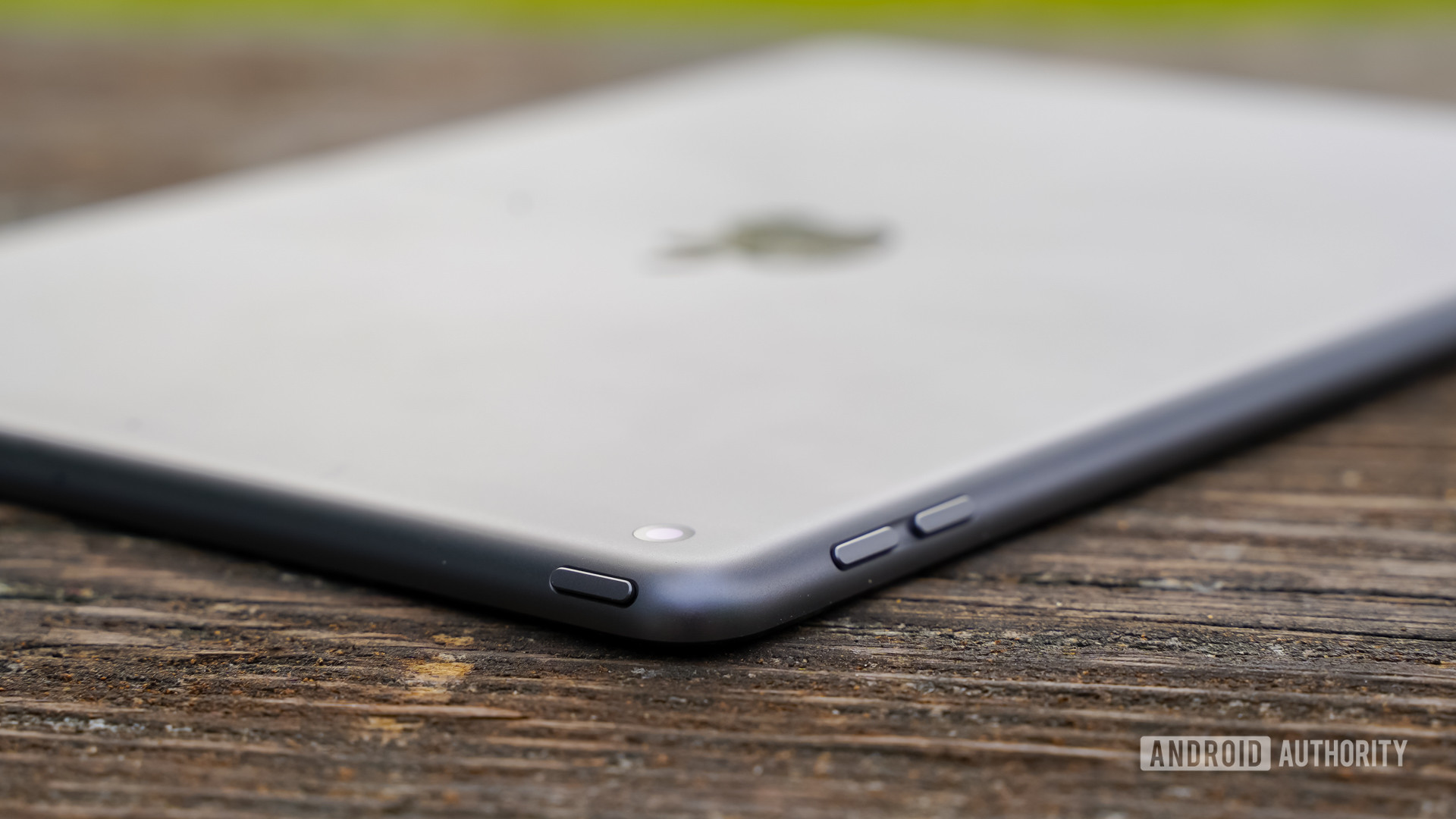
It's time the iPad (and iPhone, for that matter) join the USB-C party.
As good as the Lightning connector is, it’s not the industry-standard USB-C. Most Apple laptops, as well as the iPad Air and iPad Pro, all ship with USB-C connectors these days. It’s time the entry-level iPad (and iPhone, for that matter) join the USB-C party, despite USB-C’s faults.
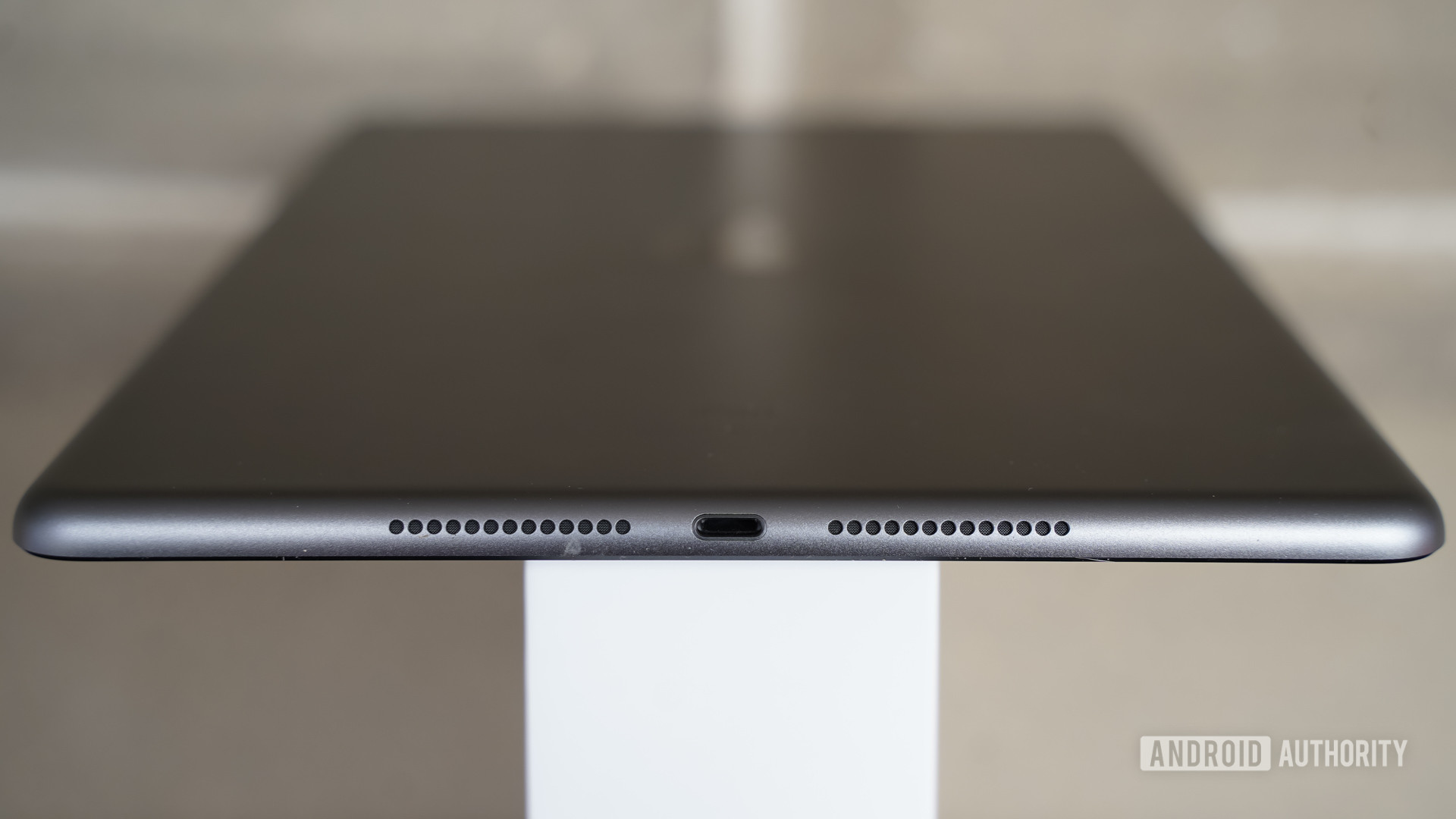
You’ll also find “stereo” speakers on the bottom edge. I put that in quotes because the speakers generate a stereo effect when the iPad is held vertically. If you tip it over on its side, which is what most people do when they watch video, the sound then comes lopsidedly from one edge. The stereo effect is lost. Moreover, it’s easy to accidentally cover the speakers with your hand when you hold it this way.
Last, there are pogo pins on one side edge. This allows the iPad to connect to the new Smart Keyboard from Apple without requiring pairing or Bluetooth.
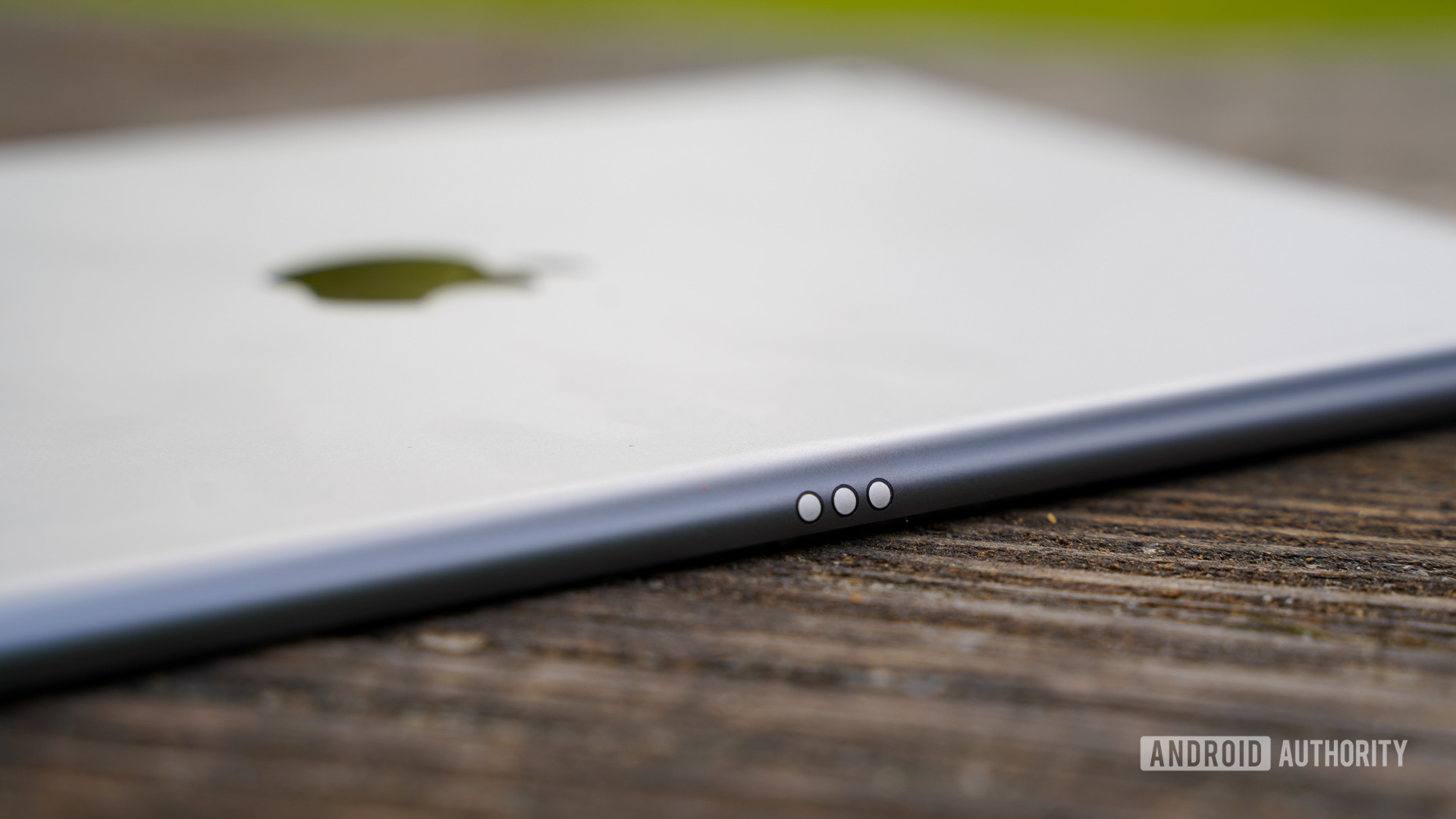
The design begins to look dated when you glance at the screen. You know, the thing you’ll spend most of your iPad time staring at. The issue is the bezels, which are simply monstrous. The iPad Pro and new iPad Air feature slim(mer) bezels. This is another carry over that Apple should have been left behind. The majority of phones and many tablets these days are sold with “all-screen” faces, meaning bezels are kept to a minimum. Apple eschews that design philosophy here, and the iPad suffers for it.
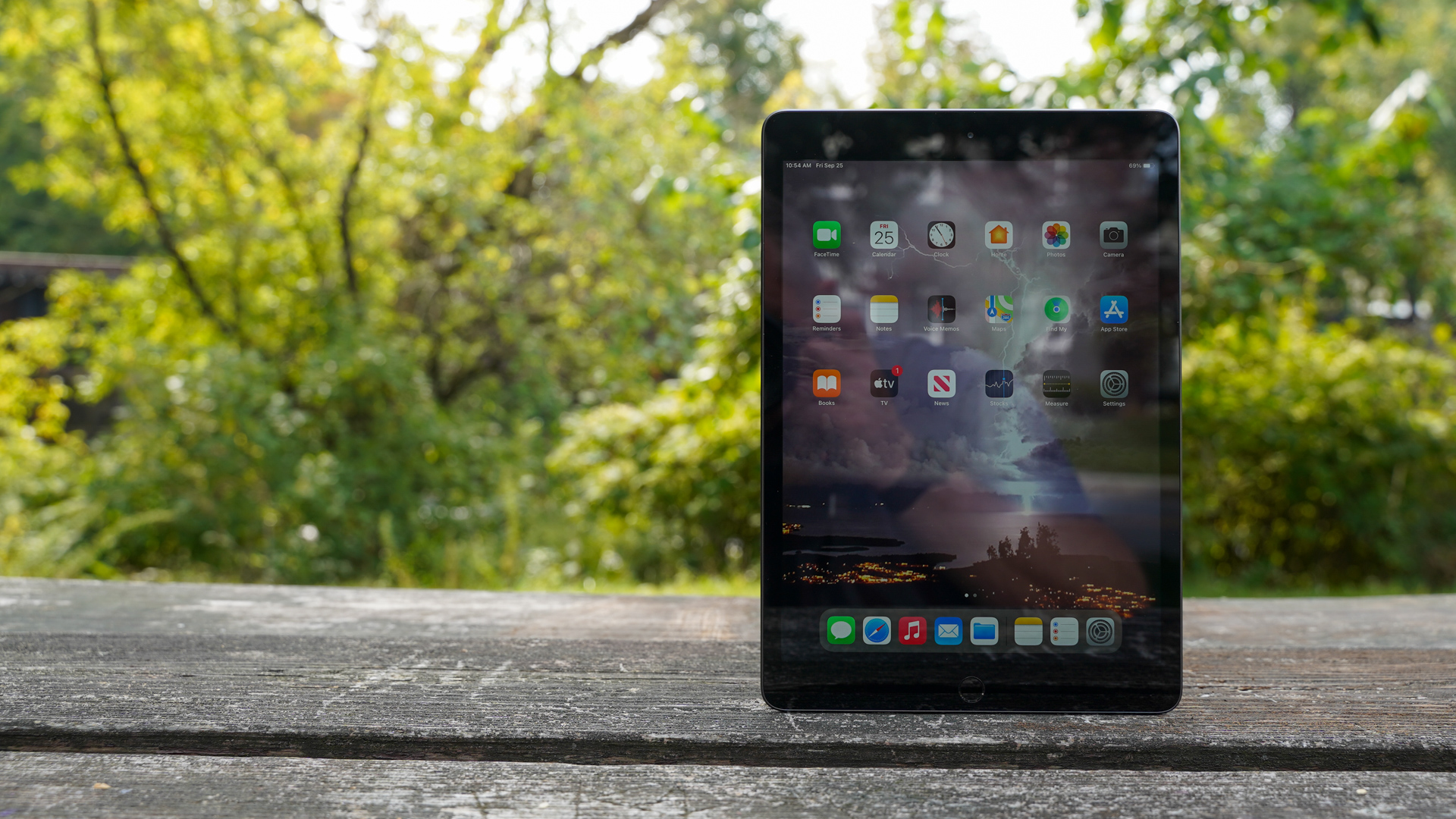
As for the screen itself, I have no complaints. The size is nice at 10.2 inches and the resolution is more than crisp enough to make high-definition video look good. Toss in the massive 500nit brightness and you have a wonderful display to look at. If you want that all-screen look, you’re going to have to upgrade to the iPad Air.
Related: Apple iPad Pro review
Apple’s eighth-gen iPad is certainly a fine piece of hardware for the money, I can’t help but think that Apple stuck with the same old design one year too many.
Performance
- Apple A12 Bionic w/Neural Engine
- Apple A12 GPU
- 3GB RAM
- 32GB, 128GB storage
Processor
The Apple iPad’s real leap compared to the previous model is the processor. It jumps several generations to the A12 Bionic chip, which modernizes the tablet and ensures it will run smoothly for years. According to Apple, the A12 delivers a 40% boost in CPU performance and a 200% jump in graphics rendering in the 2020 iPad. Apple recently added the A12 Bionic to its Apple TV 4K (2021), which gave it a solid boost in performance.
In my daily use of the tablet, I noticed absolutely zero problems or issues. Everything about the tablet’s performance was silky smooth. The games I played looked great, with no frame drops. I ran AnTuTu and 3DMark on the iPad, and the tablet scored decent marks at 440593 and 4380, respectively. Not as fast as the iPad Pro, mind you, but still fast enough for every app you’re likely to use.
See more: What is the Apple A14 Bionic?
Battery
Battery life for the Apple iPad hasn’t budged much over the years. Apple says the tablet will deliver about 10 hours of life when browsing Wi-Fi or watching video. I was actually able to achieve closer to 11 hours with the iPad again and again. The battery life simply doesn’t vary. While 11 hours is a full work or school day, it would be nice if Apple extended battery life across the iPad line to 12 hours. Other competing entry-level tablets, such as the Amazon Fire HD 10 Plus, also target the 11-hour mark with battery life.
On the charging front, I have some bad news. The tablet does not support any sort of real rapid charging. Thankfully, it ships with a 20W Apple charger and a USB-C-to-Lightning cable. We got to just 15% after half an hour of charging. You can expect it to take more than two hours to recharge the iPad from empty. Apple needs to speed up its charging.
Software
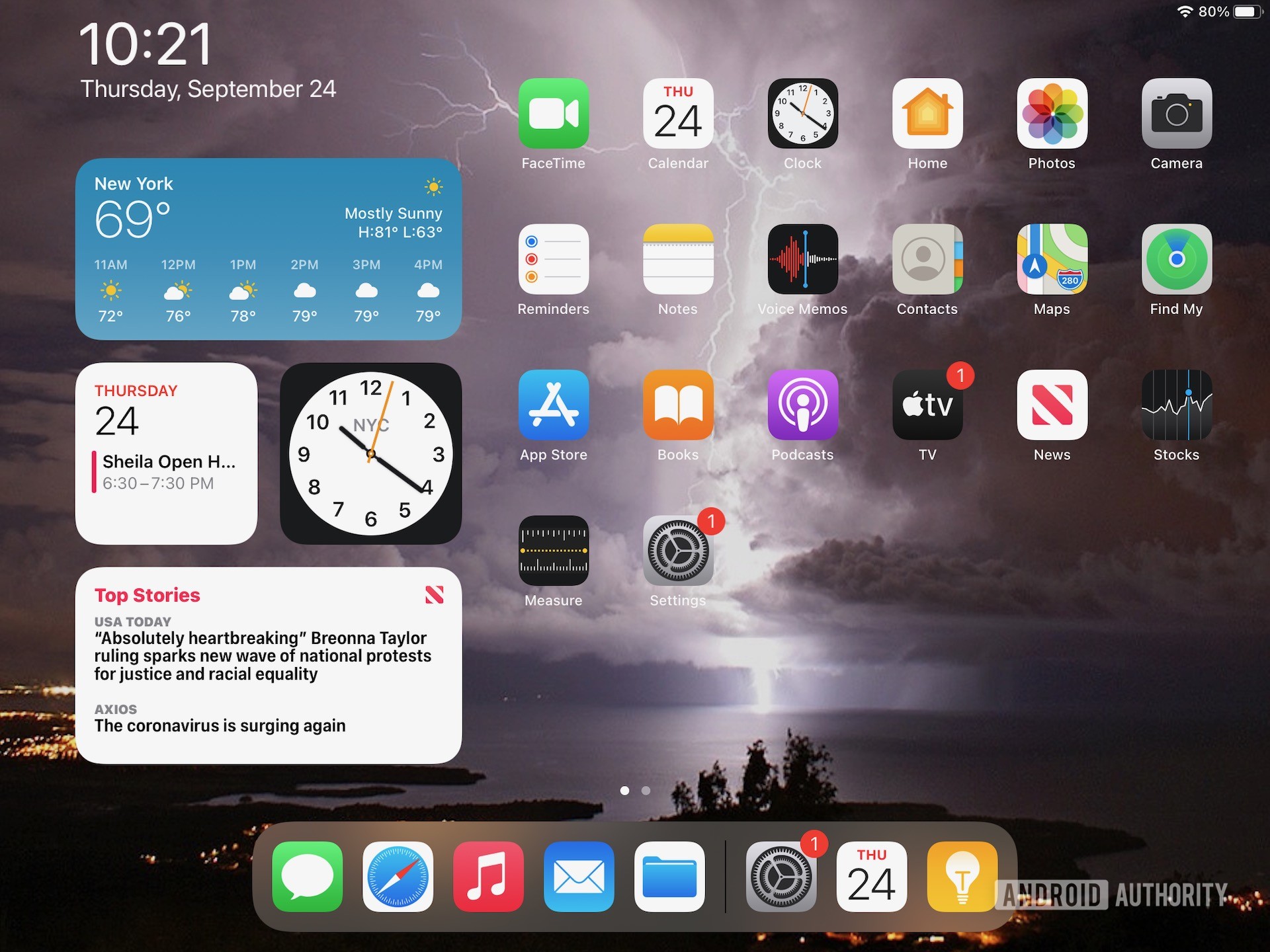
- iPadOS 14
The iPad 2020 shipped with iPadOS 14, but most users have likely updated to iPadOS 14.6 by now. Where iOS 14 is a bit more revolutionary for the iPhone, iPadOS 14 is a tad more evolutionary for the iPad.
The biggest update is perhaps the expanded selection of widgets. The slide-over menu that’s on the left side of the screen now supports a wide range of widgets that vary in size and shape. Moreover, third-party apps can take advantage of the new APIs to create their own widgets. While I like the widgets a lot, they are limited to the widget bar on the iPad. You can leave them visible at all times, or hide them, but you cannot move them to other parts of the screen like you can on the iPhone. Thank goodness this issue will be resolved once iPadOS 15 lands later this year.
Another new aspect to iPadOS 14 includes refined multitasking powers. At the moment, these are most noticeable in Apple’s own apps. For example, Apple slimmed down the menu bars and other control aspects of its apps so there is more room for content when running two apps side by side. I appreciate the expanded workspace here. Hopefully, third-party apps will catch up.
Android tablets fully support multiple users. It's past time Apple added multi-user support to iPadOS.
Speaking of apps, the Apple iPad may have the best app experience of any tablet in the market, but that doesn’t mean it’s perfect. Apps from internet giants such as Instagram still don’t fully support the iPad’s screen shape, so your mileage will vary a little. Still, the bulk of apps look and work great on the iPad. The same cannot be said of Android apps on Android tablets.
Despite these strengths, I’d be remiss if I didn’t point out the biggest failure of iPadOS 14, which is the lack of support for multiple users. Not all families can afford more than one iPad. With iPadOS, there can be only one user. Thus handing your iPad over to your kid for some screen time is fraught with risk. It’s past time Apple added multi-user support to iPadOS. Android tablets fully support multiple users. Get with the program, Apple.
Camera
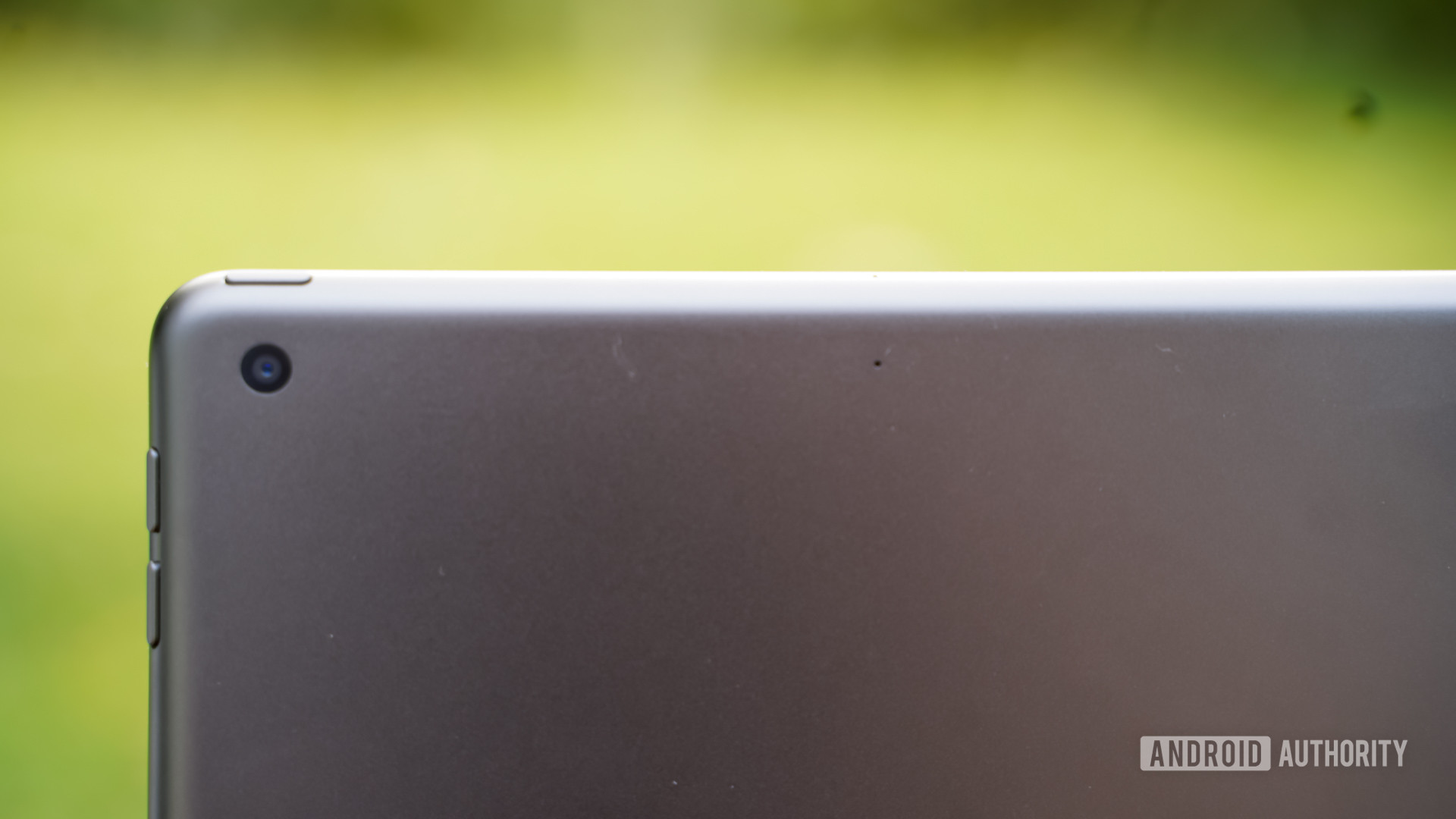
- Main: 8MP, f/2.4
- 1080p at 30fps
- Front: 1.2MP
- 720p at 30fps
The iPad’s camera almost feels like an afterthought. It’s a small module that’s flush with the rear surface of the iPad. I’m glad the camera doesn’t require a huge bump.
The app itself offers a range of shooting modes and features. For example, you’ve got photo, video, panorama, square, as well as slow-motion and time-lapse. There’s no portrait mode, but the tablet does support Live Photos. It’s a dead simple app to use.

The camera itself does a decent job. It’s able to capture balanced images that exhibit sharp focus, good color, and accurate exposure. Sometimes shots come across as a bit dull or noisy, particularly in low light, but the majority of the shots are decent. Few tablets have good cameras, so we can’t fault Apple too much here.
I can’t say the same for the selfie camera. In the age of Zoom and Google Meet video calls, the iPad (2020) doesn’t cut it. Selfies and 720p video looked grainy and flat. It’s not a great video conferencing device, though perhaps it will suffice for FaceTime calls with Grandma and Grandpa. Apple actually sought to improve the video conferencing capabilities with the new iPad Pros, but we haven’t had a chance to evaluate those yet
Apple Pencil and Smart Keyboard
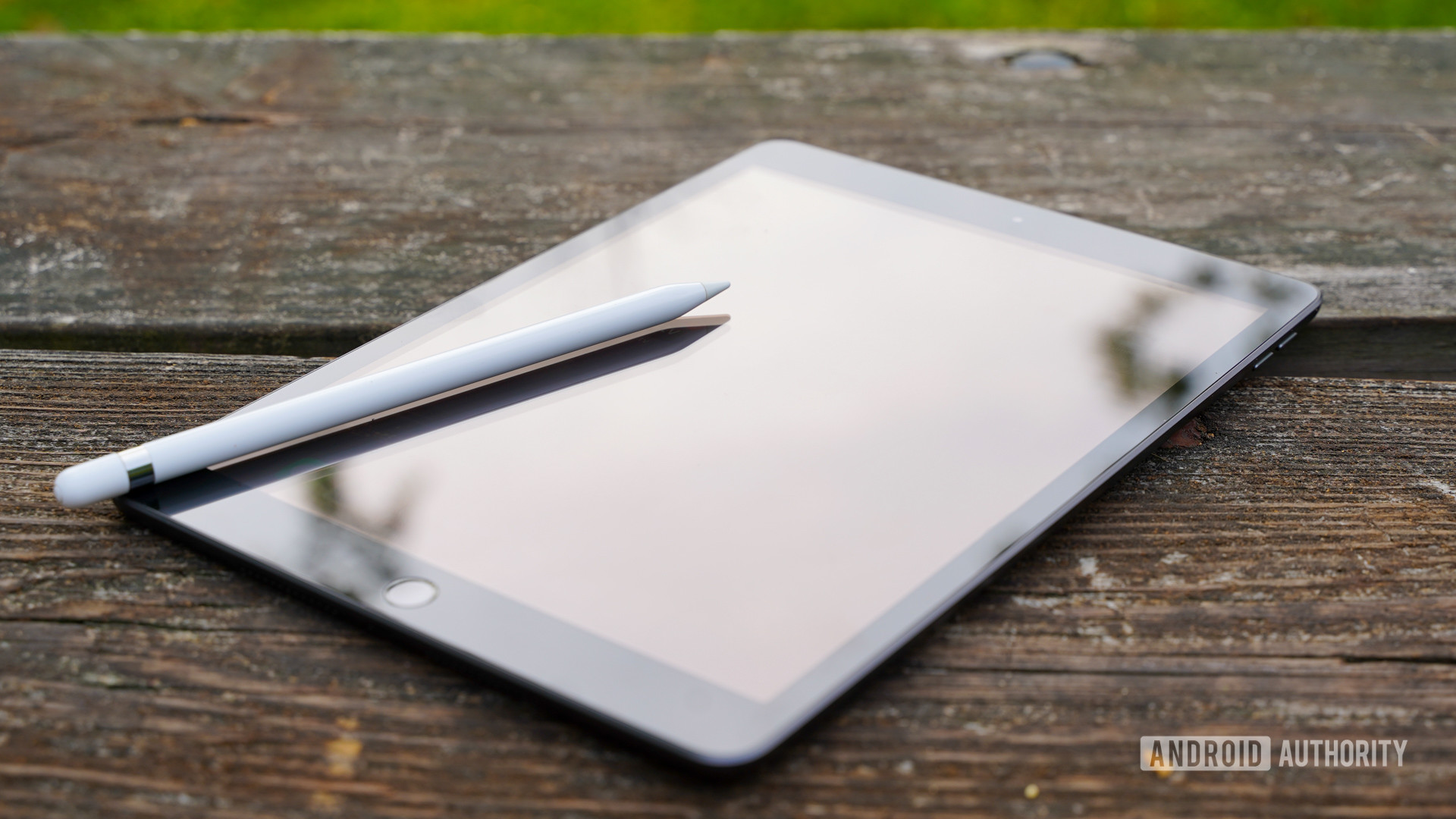
The Apple iPad supports the first-generation Apple Pencil and a brand new Smart Keyboard.
I found the Apple Pencil worked flawlessly with the tablet. It was easy to pair, and delivered great performance when drawing on the screen or using it as a pointer. There are some drawbacks, however. First, there’s nowhere to store the Apple Pencil on or in the tablet itself. The Apple iPad Air and iPad Pro both have a magnetic connector that holds and charges the Pencil. There’s nothing like that on this iPad. Moreover, the original Apple Pencil needs to be charged via the Lightning port, which is among the most awkward charging requirements I’ve seen. Last, the Apple Pencil is an optional $99 accessory; it’s not included in the box. Boo.
The Smart Keyboard is another optional accessory. At $159, it’s not cheap. You have to really value the idea of having a keyboard with the iPad to pick it up. We weren’t able to test the Smart Keyboard, but it’s worth noting that like the more expensive keyboards available to the iPad Air and iPad Pro, it connects via pogo pins and doesn’t require Bluetooth. Third-party options cost less, but are heavier and more bulky.
Apple iPad (2020): Specs
| Apple iPad (2020) | |
|---|---|
Display | 10.2-inch backlit LED 2,160 x 1,620 pixels 264ppi 500nits |
Processor | Apple A12 Bionic CPU A12 Bionic GPU Neural Engine |
RAM | 3GB |
Storage | 32GB 128GB |
Camera | Main: 8MP camera ƒ/2.4 aperture Five-element lens Hybrid IR filter Front: 1.2MP ƒ/2.4 aperture Retina Flash |
Battery | 32.4Wh Rated for 10 hours |
Dimensions | 250.6 x 174.1 x 7.75mm |
Weight | Wi-Fi: 490g LTE: 495g |
Colors | Silver, Space Gray, Gold |
Value and competition
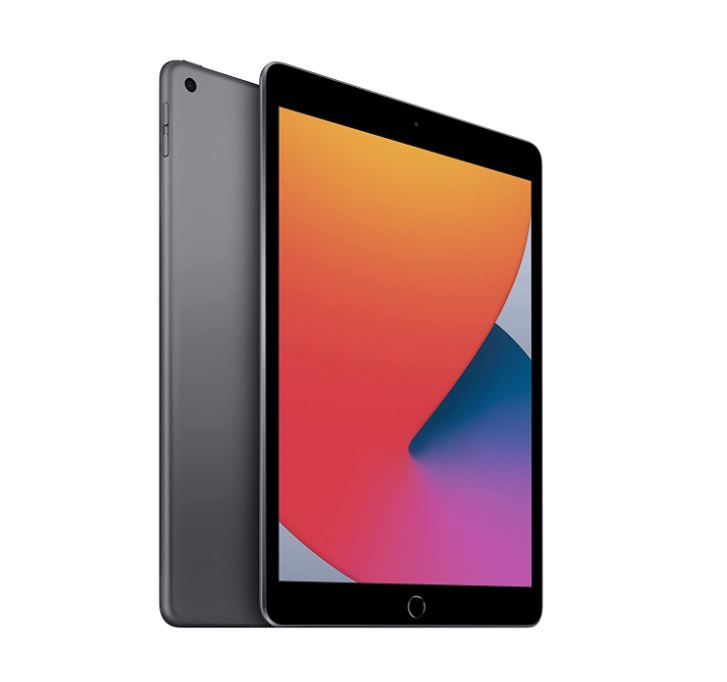
- Apple iPad Wi-Fi: 32GB — $329
- Apple iPad Wi-Fi: 128GB — $429
- Apple iPad LTE: 32GB — $459
- Apple iPad LTE: 128GB — $559
The Apple iPad (2020) comes in several different configurations and prices that range from an affordable $329 to a pricier $559. We don’t recommend the entry-level model, as it is limited to just 32GB of storage. That’s a paltry amount that, frankly, Apple should be embarrassed to offer. The good news is that even the 128GB model is fairly affordable at $429.
You get a lot of bang for the buck for that price. The Apple iPad is among the best tablets in the market, and though it doesn’t quite have the advanced capabilities of the Air or Pro models, it’s still plenty powerful enough to run multiple apps, high-end games, and the latest software from Apple. If you’re weighing the 128GB LTE model, I’d suggest you take a look at the iPad Air, which starts at $599.
Few tablets truly compete with the iPad. Samsung is the most significant competitor and has a range of its own Android-based slates to tackle Apple’s tablet. The most direct competitor is the Galaxy Tab S6 Lite, which has a limited spec sheet and performance. If you want to save money, there are several tablets worth considering, including the Samsung Galaxy Tab A7 and the Lenovo Smart M10 HD. The Tab A7 has a smaller screen size but is more portable. The Lenovo has entry-level specs but can double as a smart display. Samsung’s Galaxy Tab S7 and Tab S7 Plus are high-end machines that compete more in line with the iPad Air and iPad Pro — and they have the high price points to match.
See also: Best Android tablets
For the youngest users, you might consider an Amazon Fire tablet. Amazon’s tablets are incredibly affordable, though they are geared more towards media consumption than they are any sort of productivity. Moreover, the screens aren’t in the same league as the screens on iPad. That said, it’s hard to beat with the ~$110 starting price. The Amazon tablets run Fire OS, which is built on Android and can handle most Android apps. You do have to subscribe to Amazo Prime, however, to get the most from Amazon’s tablets.
Apple iPad (2020) review: Should you buy it?
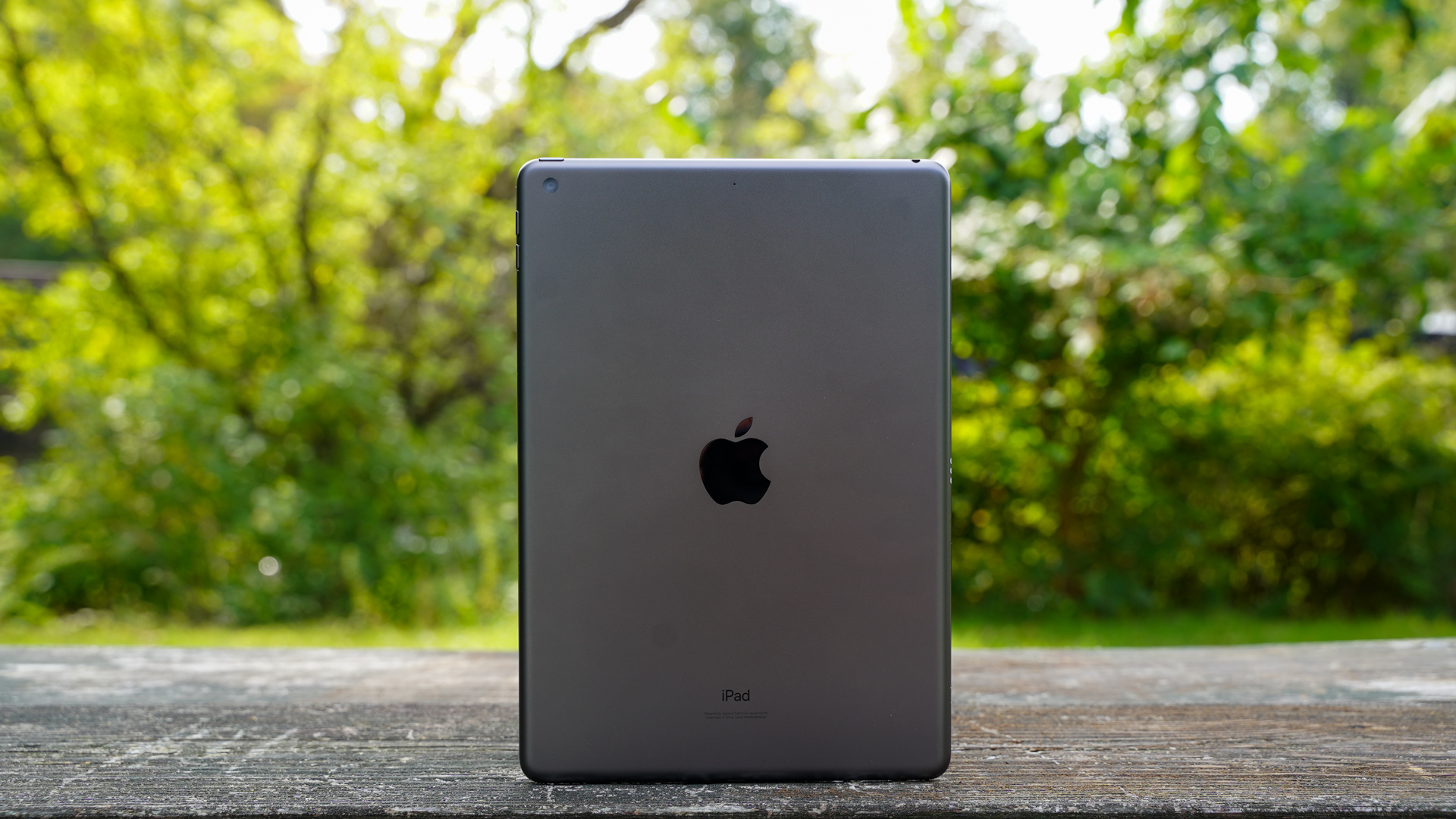
The eighth-generation Apple iPad is an affordable entry point to the world of tablets. It bests many competing models in terms of power, usability, and raw app support. It has an excellent screen, best-in-class battery life, smooth performance, and an unequaled app ecosystem. Moreover, it’s priced competitively at just $329. As with all things Apple, however, extras such as the Apple Pencil and Smart Keyboard add to the price quickly.
That said, few tablets offer as well-rounded an experience as the Apple iPad. There’s simply no other tablet to buy for casual use. The same remains true nine months from launch, but it is worth pointing out that Apple is likely to refresh its entry-level iPad line come September or October. If you can hold out for a few months, it might be worth the wait. If you need a tablet now, however, don’t feel bad about picking up the 2020 Apple iPad.